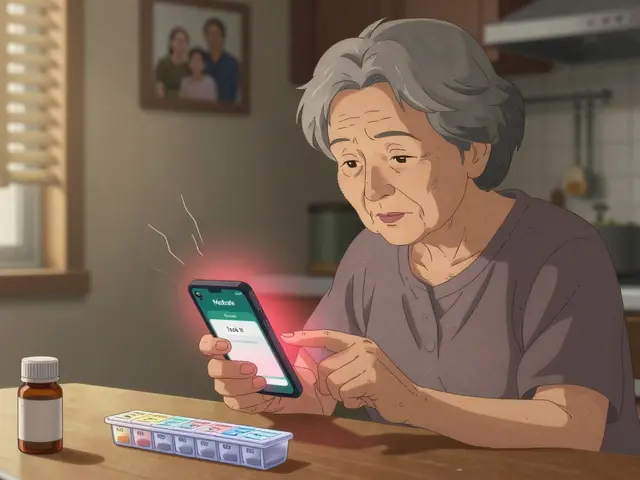Understanding the Basics: What are Gout and Arthritis?
When we talk about pain and swelling in the joints, two conditions often come to mind: gout and arthritis. While both can cause discomfort and mobility issues, they are distinct conditions with different causes and treatments. Let's start by defining what these two conditions are.
Arthritis is a broad term that encompasses over 100 conditions and diseases affecting the joints and surrounding tissues. The most common types include osteoarthritis (OA) and rheumatoid arthritis (RA). On the other hand, gout is a specific type of arthritis that usually affects the joint at the base of the big toe. It's caused by high levels of uric acid in the blood, leading to the formation of hard crystals in the joints.
The Underlying Causes: Why Gout and Arthritis Occur
While both gout and arthritis affect the joints, the root causes of these conditions are quite different. Arthritis, particularly OA, is often linked with age-related wear and tear of the joints. However, other factors such as genetics, obesity, and previous joint injuries can also contribute. RA, another form of arthritis, is an autoimmune disorder where the body's immune system mistakenly attacks the joints.
Gout, on the other hand, is closely tied with diet and lifestyle. Consuming foods and drinks high in purines, such as red meat, seafood, and alcohol, can lead to increased levels of uric acid. When the body cannot efficiently eliminate the excess uric acid, it forms crystals in the joints, causing the painful flare-ups characteristic of gout.
Recognizing the Symptoms: How Gout and Arthritis Manifest
Symptoms of gout and arthritis can sometimes overlap, which may cause confusion. However, distinguishing features can help differentiate between the two. Gout attacks are often sudden and intense, causing severe joint pain, redness, warmth, and swelling, most commonly in the big toe. These episodes can last a few days to a few weeks before subsiding.
In contrast, arthritis symptoms tend to develop gradually and persist over time. Joint pain, stiffness, and swelling are common, but the affected joints may vary depending on the type of arthritis. For instance, OA often affects the hands, knees, and hips, while RA commonly affects the hands and wrists.
Treatment Options: Managing Gout and Arthritis
Although there's no cure for either gout or arthritis, various treatment options can help manage symptoms and improve quality of life. For gout, medications to reduce uric acid levels and alleviate pain during flare-ups are frequently prescribed. Dietary modifications to avoid high-purine foods are also crucial.
Arthritis treatment, on the other hand, largely depends on the specific type. For OA, pain relievers, nonsteroidal anti-inflammatory drugs (NSAIDs), and physical therapy are often recommended. RA typically requires more aggressive treatment, including disease-modifying antirheumatic drugs (DMARDs) and biologics to slow disease progression.
Prevention Measures: Reducing the Risk of Gout and Arthritis
Although you can't completely eliminate the risk of developing gout or arthritis, certain lifestyle changes can significantly reduce your risk. Maintaining a healthy weight, eating a balanced diet, exercising regularly, and limiting alcohol intake can all contribute to lower uric acid levels, thus preventing gout.
For arthritis, particularly OA, maintaining joint health is key. Regular exercise, maintaining a healthy weight, and avoiding joint injuries can all help. For RA, while you can't control your genetics, you can focus on healthy habits, such as not smoking, eating a balanced diet, and staying active to help manage symptoms and slow disease progression.







5 Comments
Doctors said I'm lucky it was just one joint. Now I avoid shellfish like it's radioactive.
And arthritis? yeah its old people stuff right? wrong. my cousin was 28 when she got RA and she used to run marathons. now she needs a cane to walk to the fridge. its not just wear and tear, its your immune system turning on you like a traitor.
and dont even get me started on how the medical system ignores gout because 'its just diet' like we all have the budget for organic kale and salmon. some of us are surviving on ramen and beer because that's all we can afford.
also typo: 'uric' not 'urec'. i know i spelled it wrong. i'm typing with one hand while holding my crying dog. forgive me.
And arthritis? My mum has OA and she still walks 5 miles every Sunday to the market. She says it's the only time she feels free.
What I've learned? It's not about blame. It's about understanding. Your body isn't failing you-it's screaming for help.
Eat less processed junk. Move when you can. Drink water. Sleep. And if you're lucky enough to have access to good healthcare? Don't take it for granted. 🙏❤️
Gout? You ate too much. Arthritis? You resisted change.
The body doesn't lie. It just whispers until you scream back.